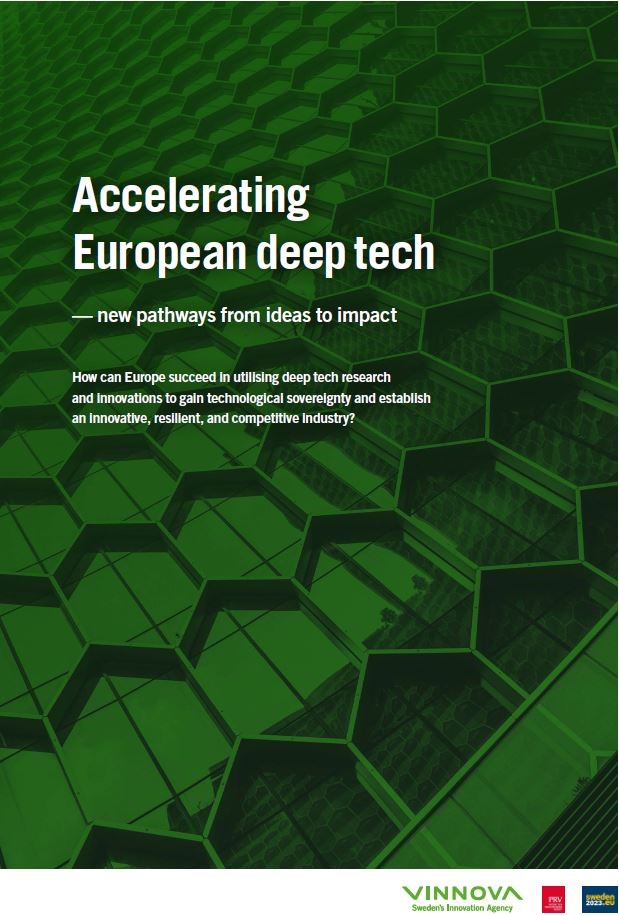How can Europe successfully use deeptech in research and innovations to gain technological sovereignty and establish an innovative, resilient and competitive industry?
The European deeptech landscape faces several challenges. It was the focus of the conference "Deep Tech Entrepreneurship for an Innovative, Resilient, and Competitive Internal Market", which was arranged by the Swedish Presidency of the Council of the European Union 1–2 June 2023. Among the challenges, the need for a more interconnected ecosystem, a growing difference in the companies' R&D investments compared to the US, and the difficulty of translating academic strength into commercial success.Furthermore, Europe's capital market is not adapted to the capital eligibility requirements that deeptech ventures need, and intellectual assets are not fully recognized as business assets.
This report from the conference contains messages and approaches that could be decisive for Europe's deeptech companies. In addition, a series of measures are proposed to meet the industry's challenges:
- Align incentives for actors in the ecosystem to support the industrialization of deeptech companies, involving investors, talent, companies, governments and academia.
- Encourage and stimulate collaborations between large companies and deeptech companies, possibly through tax incentives and subsidies.
- Create a €100 billion European technology sovereign fund, with both private and public capital, to provide growth-stage investments and support scale-ups in deeptech.
- Create attractive exit opportunities in Europe for successful deeptech companies, such as IPO markets and corporate partnerships.
- Increase demand for deeptech solutions through innovation procurement.
- Improve the incubation support system for deeptech companies to attract capital at the right valuation levels.
- Increase the availability of innovation infrastructure and create partnerships to lower costs for deeptech companies that need access.
- Improve the strategic management and exploitation of intellectual assets in the deep technology ecosystem, including skills development programs and funding for intellectual asset management.
- Create regulatory sandboxes to allow experimentation with regulations in areas that hinder development in deeptech.
More suggestions can be found in the report, which will be translated into Swedish shortly.


